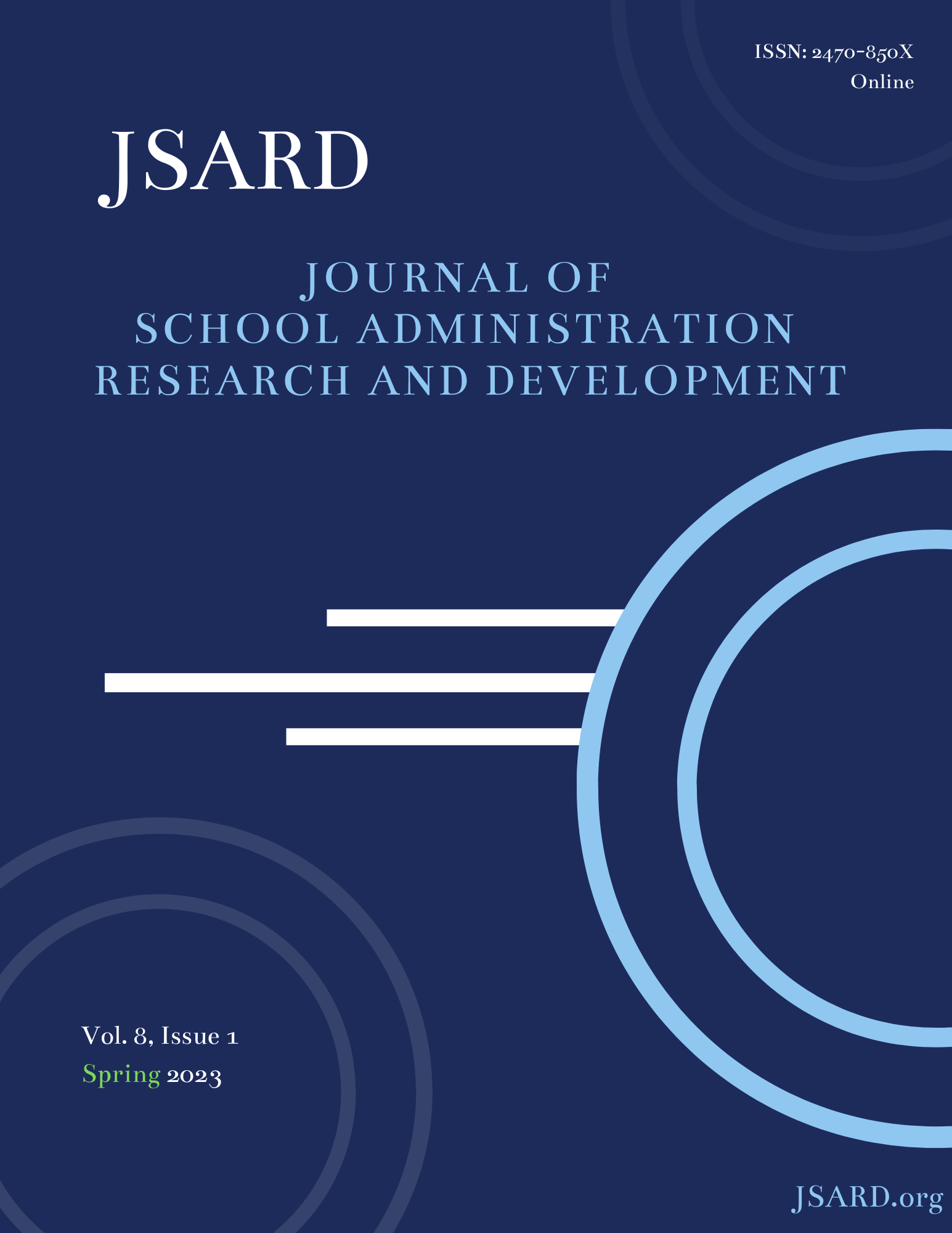Critical Pedagogy and Children’s Engagement with Climate Change
The Importance of the School and the Teacher
DOI:
https://doi.org/10.32674/jsard.v8i1.2785Keywords:
critical pedagogy, climate change, Denmark, teacher education, schoolchildrenAbstract
Raising children and young people’s climate awareness through actions outside of school could be integrated into pedagogy; instead of the individual-oriented approaches in school, educators should develop a critical pedagogy where community change and political activism are at the core. In this article, we examine how a reformulation based on critical pedagogy literature can mobilize pupils so they can implement responsible and realistic climate actions. To support this process and especially the efforts of teachers in school, we developed a model demonstrating how this can be done. The model is theoretical and normative, and the design was inspired by the experiences from national and international research and development projects. This article draws on Paulo Freire’s concept of critical pedagogy.
Downloads
References
Abrahams, F. (2016). Chp. 13: Assessment and critical pedagogy. I: The Oxford Handbook of Assessment Policy and Practice in Music Education, 2, 306-326 DOI: https://doi.org/10.1093/oxfordhb/9780190248130.013.51
Benschop, A. (1993/2012). Classes - transformational class analysis, Amsterdam: Spinhuis
Bourdieu, P. (1977). Cultural reproduction and social reproduction. In J. Karabel & A. H. Halsey (Eds.), Power and Ideology in Education (pp. 487-511). New York: Oxford University Press.
Bundsgaard, J. & Kreiner, S. (2019). Undersøgelse af De Nationale Tests måleegenskaber, 2. udgave. Aarhus Universitet, DPU DOI: https://doi.org/10.7146/aul.319.217
Cammarota, J. (2008). The cultural organizing of youth ethnographers: Formalizing a praxis‐based pedagogy. Anthropology & Education Quarterly, 39(1), 45-58 DOI: https://doi.org/10.1111/j.1548-1492.2008.00004.x
Cammarota, J. (2017). Youth participatory action research: A pedagogy of transformational resistance for critical youth studies. Journal for Critical Education Policy Studies, 15 (2), 188-213
Chen, K.H. & Morley, D. (eds.) (1996). Stuart Hall - critical dialogues in cultural studies. Taylor & Francis Ltd
Crosman, K. M., Bostrom, A., & Hayes, A. L. (2019). Efficacy foundations for risk communication: How people think about reducing the risks of climate change. Risk Analysis, 39(10), 2329–2347 DOI: https://doi.org/10.1111/risa.13334
Diani, M. (2011). The concept of social movement. The Sociological Review, 40(1), 1-25 DOI: https://doi.org/10.1111/j.1467-954X.1992.tb02943.x
Dimitriadis, G. (2014). Resistance: The anatomy of an idea. In E. Tuck, & K. W. Yang (Eds.), Youth resistance research and theories of change (pp. 29–45). New York, NY: Routledge
Ekholm, S. & Olofsson, A. (2017) Parenthood and Worrying About Climate Change: The Limitations of Previous Approaches. Risk Analysis, vol.37, Issue 2 p. 305-314 DOI: https://doi.org/10.1111/risa.12626
Freire, P. (2000). Cultural action for freedom. Harvard Educational Review: Cambridge, MA, USA
Freire, P. (1993). Pedagogy of the oppressed, London: Penguin Books
Freire, P. (1994). Pedagogy of hope: Reliving pedagogy of the oppressed. New York: Continuum.
Giroux, H. (1994). Teachers, public life and curriculum reform. Peabody Journal of Education, 69 (3), 35-47. DOI: https://doi.org/10.1080/01619569409538776
Gramsci, A. (1998) Selections from the Prison Notebooks. Q. Hoare & G. Nowell-Smith (eds) London: Lawrence and Wishart.
Green Network (2018). Policy paper, https://greeen-eu.net/
Illeris, K. (1974a). Skolens formål er ikke det samme som dens faktiske funktion, Pædagogisk Orientering, 2, 19-24
Illeris, K. (1974b). Problemorientering og deltagerstyring -oplæg til en alternativ didaktik. København: Munksgaard.
Illeris, K. (1985). Modkvalificeringens pædagogik -problemorientering, deltagerstyring og eksemplarisk indlæring. 2. oplag. Nyt forord (1. udgave 1981). København: Unge Pædagoger.
Jensen, S. Q. (2012). Stuart Hall: Kulturforskning som kritisk engagement. I M. Hviid Jacobsen & A. Petersen (eds.), Samfundsteori og Samtidsdiagnose: En introduktion til sytten nyere samfundstænkere for det pædagogiske felt (pp. 21-35). København: Unge Pædagoger.
Klandermans, B. (1992). The social construction of protest and multiorganizational fields. In A. D. Morris & C. M. Mueller (Eds.), Frontiers in social movement theory, (pp. 77-103). New Haven, CT: Yale University Press
Johansson, T. & Lalander, P. (2012) Doing resistance – youth and changing theories of resistance, Journal of Youth Studies, 15:8, 1078-1088, DOI: 10.1080/13676261.2012.693591 DOI: https://doi.org/10.1080/13676261.2012.693591
Rømer, T.A. (2002). Læring og objektivitet i projektarbejdsformen, Nordisk Pedagogik, 2, 88 – 98. DOI: https://doi.org/10.18261/ISSN1891-5949-2002-02-02
Smith-Maddox, R. & Solórzano, D. G. (2002). Using critical race theory, Paulo Freire’s problem-posing method, and case study research to confront race and racism in education. Qualitative Inquiry, 8(1), 66–84. https://doi.org/10.1177/107780040200800105 DOI: https://doi.org/10.1177/107780040200800105
Tireli, Ü. & Jacobsen, J.C. (2019). Kritisk pædagogik for pædagoger – social retfærdighed for børn og unge. Akademisk forlag
Ziehe, T. (1989). Ambivalenser og mangfoldighed, Politisk Revy
Ziehe, T. (2004): Øer af intensitet i et hav af rutine nye tekster om ungdom, skole og kultur. Politisk Revy
Willis, P. (1977). Learning to Labour: How Working Class Kids Get Working Class Jobs, Westmead, Farnborough: Saxon House.
Downloads
Published
Issue
Section
License
Copyright (c) 2023 Journal of School Administration Research and Development

This work is licensed under a Creative Commons Attribution-NonCommercial-NoDerivatives 4.0 International License.
All published articles are licensed under a Creative Commons Attribution-NonCommercial-NoDerivs 4.0 Unported License.


.png)
